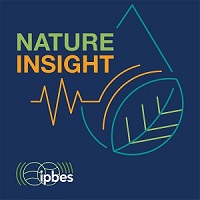Gastbeitrag des IPBES Sekretariats: IPBES Under Lockdown – ‘Virtually’ Full Steam Ahead
Hien Ngo (IPBES Sekretariat) berichtet über die Implementierung des IPBES Arbeitsprogramms in Zeiten von Corona und die Reaktion des IPBES auf die drängende Nachfrage nach wissenschaftlichen Informationen zum Zusammenhang von Biodiversität und Pandemien.
In March 2020, IPBES – much like the rest of the world –had to adjust to the working realities of the COVID-19 pandemic and was able to relatively quickly shift to remote and virtual working arrangements. The secretariat, based in Bonn, but with an extended ‘family’ of 8 technical support units (TSUs) all over the world, has therefore continued to facilitate the vital work of the Platform during these very challenging times.
The implementation of the IPBES work programme did not, therefore, take any great pause:
- In March and April IPBES held both the nexus assessment scoping meeting (23 March – 02 April) and the transformative change assessment scoping meeting (21 – 30 April), virtually producing the scoping reports that went for external review on 5 June and 3 July respectively;
- All five IPBES task forces (capacity-building, policy support tools, scenarios and models, indigenous and local knowledge and knowledge and data) held their meetings virtually within this period (April – July);
- IPBES convened a meeting of all its National Focal Points early July (6 to 10 July) as well as a webinar (14 July) and an indigenous peoples and local communities’ (IPLC) dialogue (16 July); and
- Currently the secretariat is preparing for the 15th meetings of the Bureau and the Multidisciplinary Expert Panel (MEP) in mid-September – which will also take place entirely online.
Please see here for more information about IPBES events: https://ipbes.net/events

IPBES
June also saw the launch and release of new ways to connect decision-makers with the vital work of IPBES using some innovative approaches to communication in our socially-distanced world - the frist ever IPBES Podcast series : Nature Insight: Speed Dating with the Future (6 episodes) – finding.
For more information on the IPBES podcast: https://ipbes.net/podcast
Lastly, zoonotic viral diseases that turn into pandemics (like COVID-19) have critical linkages to not just our health but also to biodiversity and global environmental change. IPBES responded to the urgent need for scientific information on the links between pandemics and biodiversity by holding a platform workshop with some of the top health and biodiversity experts in the world.

Peter Daszak
IPBES
Led by one of the IPBES nexus scoping experts – Dr. Peter Daszak, along with approximately 30 participants selected in response to a call for nominations, a virtual workshop took place from 27 – 31 July. The outcomes of this workshop will be a current, evidence-based workshop report that reviews the origin of infectious diseases transmitted from wild animals, the relationship between pandemics and biodiversity, in particular the drivers of pandemics and options for action related to biodiversity and ecosystem services, in the context of the current crisis and the prevention of future outbreaks. This workshop report will mainly support and inform the scoping of the nexus assessment as well as other ongoing IPBES assessments.
Please look for an announcement of the review of the pandemics and biodiversity workshop report later this year! We thank the BMU for providing financial support to the process of preparing the workshop report.
For more information on the IPBES pandemics and biodiversity workshop: https://ipbes.net/pandemics-workshop




